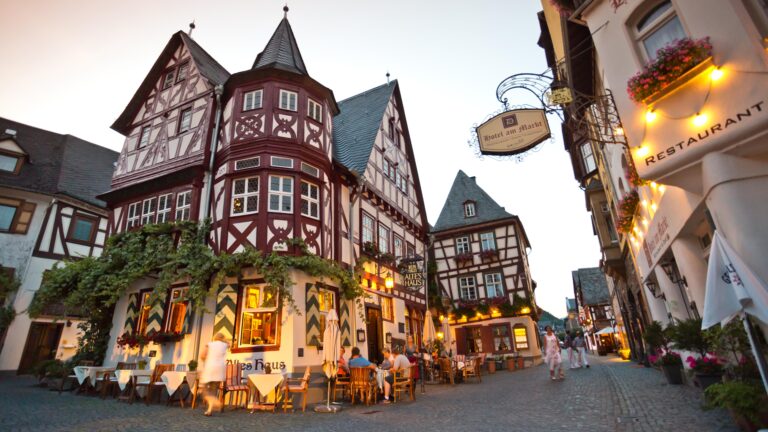Germany has announced its support for a France-led initiative advocating a two-state solution to the long-standing Israel-Palestine conflict, Bloomberg News reports, citing Reuters. This move signals Berlin’s renewed commitment to diplomatic efforts aimed at reviving peace talks between the two sides, aligning with broader European calls for a negotiated resolution based on mutual recognition and coexistence. The endorsement underscores growing international momentum behind the proposal as tensions in the region persist.
Germany Signals Strong Support for France-led Two-State Initiative in Israel-Palestine Conflict
Germany has emphatically expressed its backing for the France-led diplomatic efforts aimed at reviving the long-stalled two-state solution to the Israel-Palestine conflict. This support signifies Berlin’s commitment to a peaceful resolution through multilateral cooperation, highlighting the necessity of dialogue between all parties involved. German officials stressed the importance of a balanced approach that upholds the security and political aspirations of both Israelis and Palestinians, reinforcing the EU’s collective stance on the matter.
Key elements of Germany’s support include:
- Increased diplomatic engagement with regional stakeholders.
- Backing international mediation efforts to prevent further escalation.
- Promotion of economic and humanitarian aid aimed at stabilizing affected areas.
A brief overview of recent diplomatic moves related to the initiative is summarized below:
| Date | Action | Stakeholders |
|---|---|---|
| May 2024 | France presents two-state plan draft | France, EU, Israel, Palestine |
| June 2024 | Germany announces support for plan | Germany, France, EU |
| July 2024 | Joint EU call for ceasefire and negotiations | EU Member States, UN |
Implications of Germany’s Backing for Middle East Peace Prospects and EU Diplomacy
Germany’s endorsement of the France-led diplomatic initiative marks a pivotal moment in the EU’s collective approach to the Israel-Palestine conflict. By aligning with Paris’ vision of a two-state solution, Berlin signals its commitment to reinvigorate dialogue and mediation efforts within the Middle East. This move is anticipated to galvanize EU cohesion on foreign policy, potentially transforming the bloc from a traditionally cautious observer into a more assertive peace broker. The backing also underscores Germany’s strategic interest in stabilizing the region, which is crucial both for broader security concerns and migration dynamics influencing Europe.
From a diplomatic perspective, Germany’s support lends greater legitimacy to the EU’s unified stance and may encourage other member states to adopt a firmer position. Key implications include:
- Enhanced leverage in negotiations with regional parties, bolstering Europe’s voice on the global stage.
- Improved coordination between EU institutions, facilitating a harmonized response to emerging challenges in the Middle East.
- Deepening of bilateral ties with both Israel and Palestine, opening avenues for increased dialogue and trust-building measures.
| Aspect | Expected Outcome |
|---|---|
| EU Diplomatic Unity | Stronger, cohesive policy framework |
| Regional Stability | Potential reduction in conflicts |
| Germany’s Role | Leadership in peace mediation |
Strategic Recommendations for Stakeholders to Leverage Franco-German Cooperation in Advancing Negotiations
Key stakeholders should capitalize on the robust Franco-German alliance by fostering joint diplomatic initiatives aimed at reinvigorating stalled peace talks. Coordinating high-level dialogues supported by shared intelligence and political backing can amplify leverage when engaging with conflicting parties. Additionally, establishing a unified framework encompassing economic incentives and humanitarian aid will showcase a balanced approach, emphasizing both peace and regional development.
To optimize outcomes, it is imperative to prioritize collaborative platforms that enhance transparency and accountability. This includes:
- Regular trilateral consultations aligning EU mechanisms with Franco-German objectives
- Joint funding mechanisms to support grassroots peacebuilding projects
- Public communication strategies unified to manage international perceptions and media narratives
| Stakeholder | Recommended Action | Expected Impact |
|---|---|---|
| France | Lead diplomatic negotiations | Enhanced negotiating authority |
| Germany | Provide political and economic support | Increased resource availability |
| EU Institutions | Coordinate policy coherence | Unified European stance |
Closing Remarks
As Germany aligns itself with the France-led push for a two-state solution, the international community watches closely how this renewed diplomatic effort will influence the longstanding Israel-Palestine conflict. With key European players now endorsing a collaborative approach, the coming months may prove critical in shaping prospects for peace in the region. Further developments and responses from both sides will be essential to monitor as the situation evolves.




